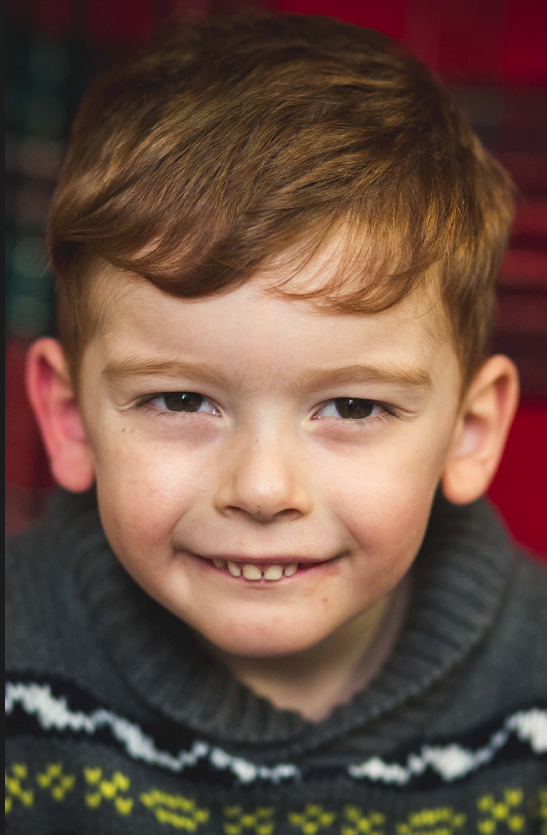 A toddler who melts down over and over.
A toddler who melts down over and over.
A preschooler who throws tantrums that can be heard next door.
An elementary aged child who explodes –or implodes—at the slightest thing.
I hear these stories every day in my practice, and my first question is always the same:
How much sleep is your child getting?
It didn’t used to be this way. When I first began coaching parents, we’d start by looking at the behaviors for patterns, for lagging skills, for trigger events. Then we’d discuss how parents could help themselves and their kiddos to recognize what was going on and why. We’d develop skills that allowed parents to prevent, reduce, and minimize misbehavior. They would leave my office with new tools for change.
And it worked—up to a point. For many families, this was all that they needed. Yet for others, it seemed something else was going on. Something all our work during the day couldn’t quite reach, couldn’t quite change.
There was.
Now, when a parent reaches out for help on daytime behavior we start with what’s happening at night. We start with sleep.
The first question is followed by: tell me about bedtime and talk to me about naps. Then once put down for the night, does your child stay asleep? What time do they wake in the morning?
Listening to parents talk about these five points tells me what I need to know and where we go next.
Sleep. Are there enough zzzz?
Infants should sleep 14-18 hours in a 24 hour period, and the maximum amount of time they should be awake between naps changes by the month. Toddlers should be getting 13-15 hours of sleep, with two naps early in toddlerhood. Preschoolers need 12 hours of total sleep, and most are taking an afternoon nap. School aged children should get 10 hours, adolescence 9.5 and adults? We should be getting at least eight. Eight hours of uninterrupted sleep. Really. No kidding.
Bedtime. It can be beautiful.
Yet often it takes hours. Or it feels like a minefield. Or includes kids who look like Tasmanian devils. Are you nodding your head to any of the last three? Time for change. First, ditch the bath. As adults the mere thought of tub-time changes our stress. We imagine soft bubbles, low lighting, maybe a glass of wine. Ahhhhh…But to our children? A tub is an indoor water park. It amps them up higher than they were before. So if bath is a battle—move it to a different time of day. Might I suggest the 4 p.m. witching hour?
Next, move bedtime 30 minutes earlier. Really. You know that point in the evening where there is a brief lull? When they are a bit quieter? Slightly calmer? That is in-your-bed-lights-out-time. By the time a child is yawning or rubbing their eyes or batting their ears or getting cranky? Bedtime already went by. So check the clock and start earlier tomorrow.
Is your child an early bird?
From morning larks to night owls, we all have a preferred sleep cycle. But if your little one is waking up for the day at 4:35? 4:52? 5:03? 5:27? Chances are, they are waking before their body is ready, they are waking before the last full sleep cycle. What to do? Often our friends, family and even health care providers will say “keep them up later”. Worst. Advice. Ever. Okay, that may be a bit strong, but it is close. Keeping a baby or child up longer during the day makes it harder for them to fall asleep, stay asleep or sleep in. Not enough sleep is stressful to a child’s body, and as a result, they produce the hormone cortisol. And cortisol is what messes with sleep—it becomes a reinforcing cycle of unrest. So if you have a baby bird that is up before the sun, or one who wakes often in the night? Put them to bed earlier.
The dance of good sleep has lots of factors—time, place, rooms, companions. Putting a child down earlier is the piece of advice that provokes the strongest reaction. Often I get cold stares, or eye rolls, or a burst of “are you kidding me?” Yet a day or two later I get an incredulous message—“I thought you were crazy, but it totally worked!” I have never, ever, had a child wake up even earlier, wake more often, or not sleep well when they go to bed at an earlier time. Ever.
Parenting is a paradox of long days and swiftly passing years. Yet if we shorten those days by a few minutes to create longer nights, the days that follow are filled with wonderful moments. Here’s to more sleep. Sweet dreams.
Emily McMason is a personal & parent coach and childhood sleep specialist. To connect with her and learn more: emily@evolving-parents.com or www.evolving-parents.com.

 Sometimes us women and mother's forget about our self or hope our partner's or husbands will read our minds and get us that beautiful gift. If you have the funds buy it yourself, that being said sometimes the most beautiful things are free. Like a walk alone, sipping warm tea and spending time reading a book curled up on your bed, or making a beautiful meal for your family or having a bath and putting make up on (and deodorant)....
Sometimes us women and mother's forget about our self or hope our partner's or husbands will read our minds and get us that beautiful gift. If you have the funds buy it yourself, that being said sometimes the most beautiful things are free. Like a walk alone, sipping warm tea and spending time reading a book curled up on your bed, or making a beautiful meal for your family or having a bath and putting make up on (and deodorant)....








